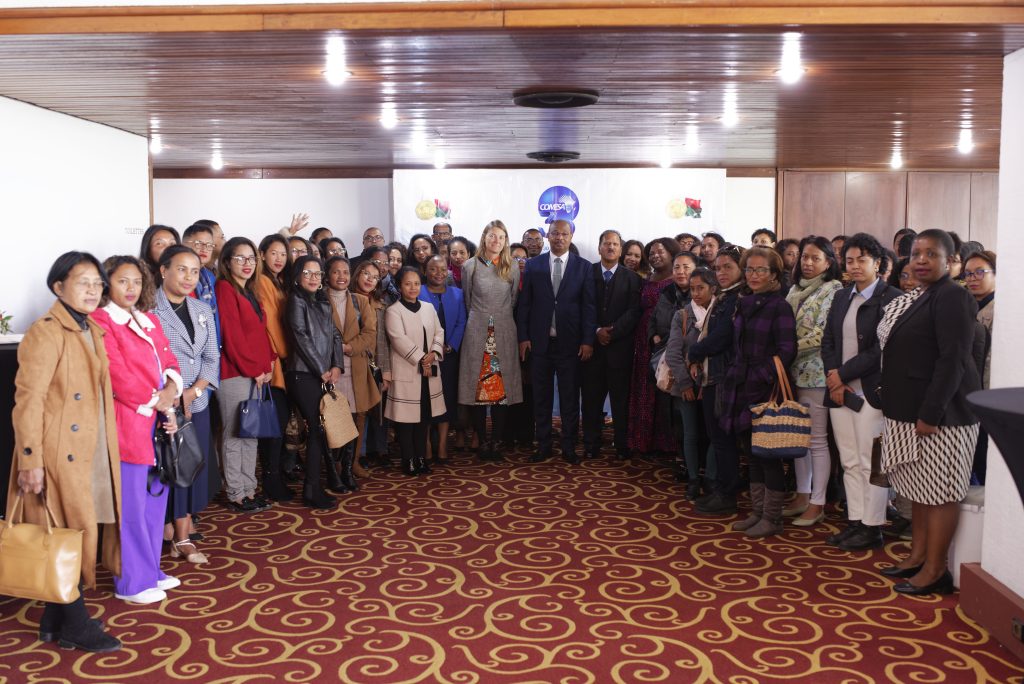
Women and youth in business in Madagascar were key targets for COMESA Week awareness-raising initiatives, given their critical role in economic development. On June 25, 2024, in Antananarivo, over 100 participants attended a multi-stakeholder dialogue organized by the COMESA Secretariat. The objective was to equip women and youth with the necessary tools to enhance their participation in regional trade.
In total more than 130 participants from public and private sectors and civil society institutions attended the dialogue. They were introduced to various COMESA trade facilitation tools, COMESA- European Union initiatives supporting women, COMESA’s gender frameworks, and the women in business digital platform.
Opening the dialogue, Mr. Kola Emi-Haulain, Permanent Secretary of the Ministry of Foreign Affairs of Madagascar, emphasized that while women and youth form the bulk of the continent’s population, they face significant hurdles in seeking economic livelihoods.
“Women and young people represent the majority of the African population and constitute the main pools of potential, skills, and resources on the continent. They face challenges linked to access to financing, markets, mentoring, and business opportunities,” he said.
He described the multi-stakeholder dialogue forum as a valuable platform for information and knowledge exchanges, assisting in identifying the best strategies and practices to better involve women and young people in regional programs and trade.
This point was further stressed by COMESA Assistant Secretary General Dr. Dev Haman, who highlighted that being part of COMESA allows entrepreneurs in Madagascar to access a much bigger market, urging women and youth to take advantage of this opportunity.
Mrs. Anna Cichocka, Charge d’Affaires at the European Union (EU) Delegation to Madagascar, noted that the event demonstrated the strong relations between the EU and COMESA.
“An efficient COMESA is impossible without women and youth,” she stated.
She highlighted the various initiatives the EU supports, focusing on women, such as the Regional Enterprise Competitiveness and Access to Market Programme (RECAMP).

